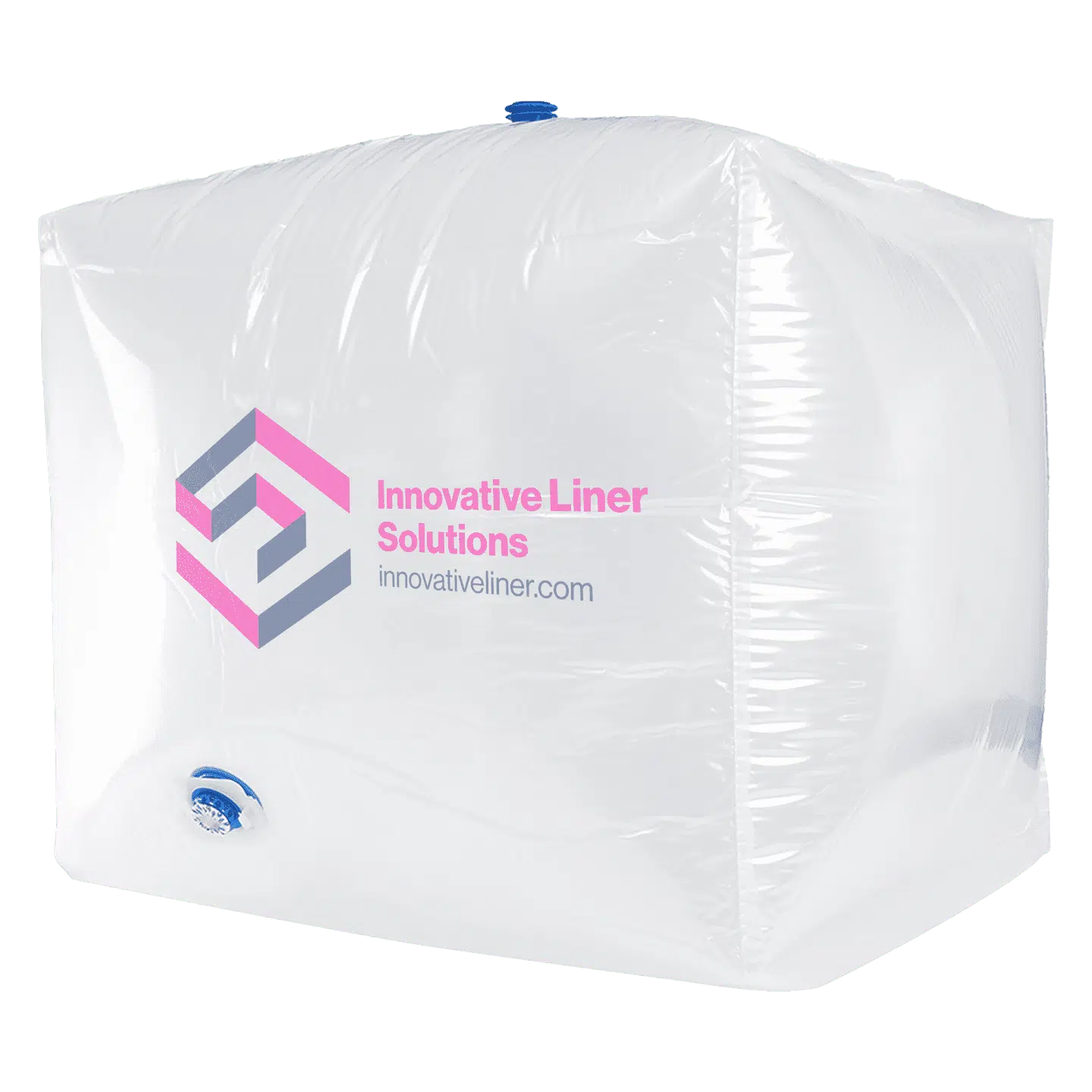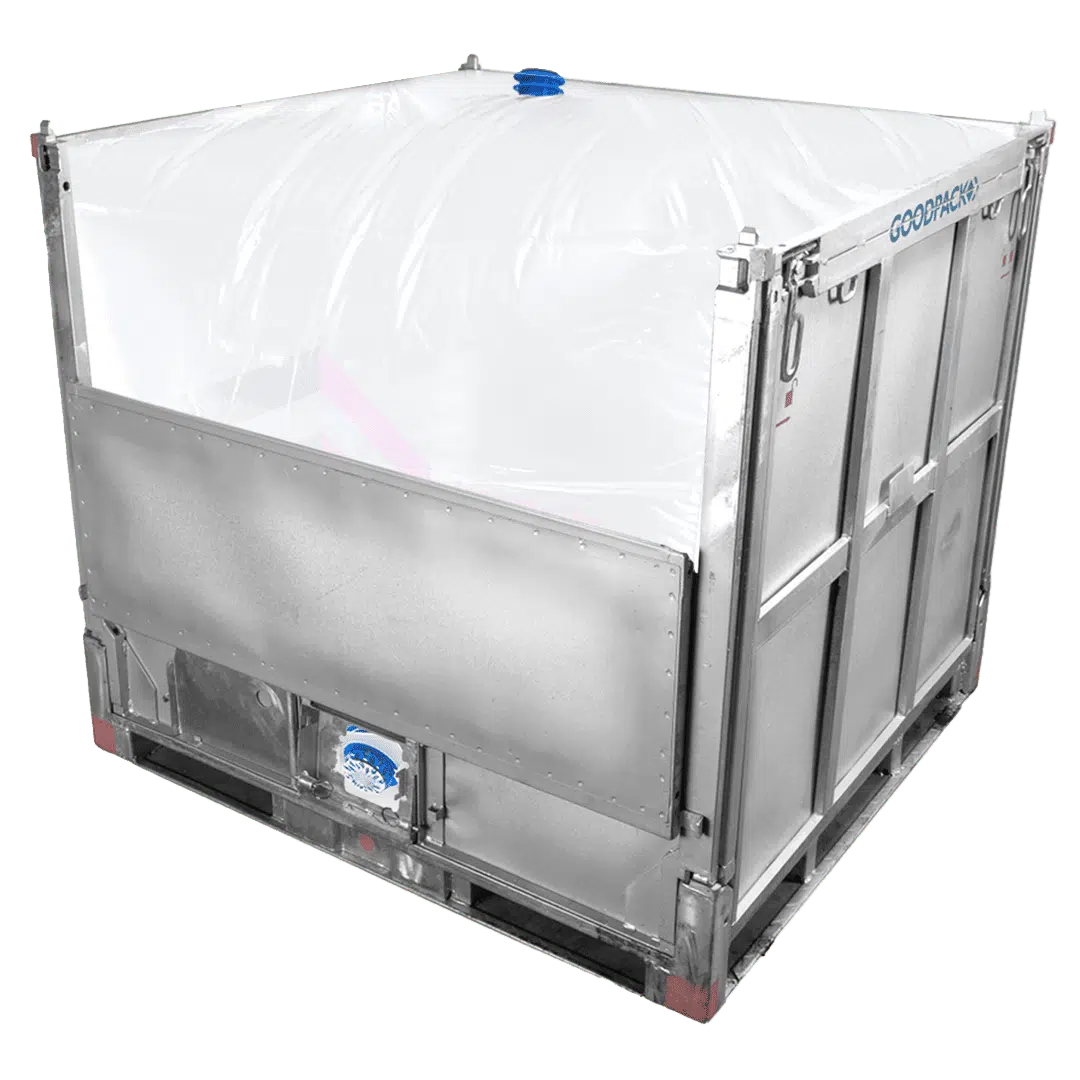An IBC bulk container is a versatile solution for storing, transporting, and handling large volumes of liquid efficiently. Used across industries such as food, pharmaceuticals, chemicals, and industrial manufacturing, IBCs provide a safe and cost-effective way to manage bulk liquids. When paired with the right IBC liners or liquid tote liners, they offer enhanced protection, operational efficiency, and compliance with industry standards.
Understanding what an IBC bulk container is and how it works is key to selecting the best bulk liquid packaging solutions for your business.
Understanding IBC Bulk Containers
Intermediate Bulk Containers (IBCs), also known as IBC totes, are rigid or semi-rigid containers designed to hold liquids or granulated substances in bulk. They typically have a capacity ranging from 275 to 330 gallons, making them a larger alternative to drums while still manageable for transport and storage.
IBCs are commonly made from high-density polyethylene (HDPE) with an outer cage of steel or plastic to provide structural support. Some are also available in stainless steel for chemical or pharmaceutical applications.
By using intermediate bulk container liners, businesses can protect the liquid contents, reduce contamination risk, and simplify cleaning between uses. These liners include IBC liner bags, liquid bulk container liners, and industrial IBC liners designed for specific product types.
Benefits of IBC Bulk Containers
There are several advantages to using IBC bulk containers:
- High Capacity: Each container holds significantly more liquid than a standard drum, reducing the number of containers needed.
- Efficient Transport: IBCs are pallet-sized and stackable, making them ideal for shipping by truck, rail, or sea.
- Versatility: Suitable for a wide range of liquids, from food and beverage products to industrial chemicals.
- Durability: Outer cages and robust liners help prevent leaks and spills, ensuring safe handling.
When combined with bulk liners or IBC tote liners for sale, these containers become even more effective by safeguarding the liquid from contamination and simplifying filling and discharge operations.

Common Applications of IBC Bulk Containers
IBC bulk containers are used across multiple industries, each with specific requirements for liner selection and container use.
Food and Beverage
In the food and beverage industry, liquid tote liners protect products such as juices, syrups, oils, sauces, and dairy concentrates. Sanitary liners help maintain hygiene, prevent contamination, and preserve freshness.
Pharmaceuticals
Pharmaceutical applications require strict regulatory compliance and sterile handling. Barrier liners or multi-layer IBC liners are commonly used to protect sensitive solutions, active ingredients, and sterile liquids from moisture and oxygen exposure.
Chemicals and Industrial Liquids
For chemicals, adhesives, resins, paints, lubricants, and other industrial liquids, industrial IBC liners or bulk liners ensure durability and chemical resistance. Anti-static or high-resistance liners may also be required for certain hazardous products.
Flexibility Across Industries
The combination of IBC containers and liners allows businesses to store or transport different liquid types using the same container. By swapping out the liner, a single IBC can handle multiple products safely, reducing operational costs and downtime.
Choosing the Right Liner
The performance of an IBC bulk container heavily depends on the liner used. Options include:
- Form-fit liners: Ideal for viscous liquids like adhesives, resins, and gels, providing maximum product recovery.
- Pillow-style liners: Flexible and suitable for food-grade liquids, enabling easy dispensing and minimal waste.
- Barrier liners: Multi-layer designs that protect sensitive liquids from oxygen, moisture, or UV degradation.
- Anti-static liners: Necessary for flammable or electrically sensitive chemical applications.
Selecting the correct liner ensures your IBC can safely store and transport liquids while maximizing efficiency. For a detailed overview of liner types and applications, see The Ultimate Guide To IBC Liners And Bulk Liquid Packaging.

How IBC Liners Improve Operations
Pairing IBC bulk containers with the right IBC liner bag or liquid bulk container liner provides several operational advantages:
- Maintains Product Integrity: Liners prevent contamination, ensuring the liquid remains pure from storage to end use.
- Efficient Filling and Dispensing: Well-designed liners allow fast filling and near-complete discharge, minimizing waste.
- Reduced Downtime: Liners eliminate the need for extensive cleaning between uses, saving labor and resources.
- Flexibility: One container can handle multiple liquid types by changing the liner, supporting diverse operational needs.
An IBC bulk container is a highly versatile and efficient solution for businesses handling liquids in bulk. When combined with the right IBC liners, intermediate bulk container liners, or liquid tote liners, it ensures product safety, operational efficiency, and compliance with industry standards.
Whether you are managing food-grade products, pharmaceuticals, chemicals, or industrial liquids, investing in the correct IBC and liner combination optimizes your bulk liquid packaging solutions and enhances overall workflow.
Ready to improve your bulk liquid handling with IBC bulk containers and liners?
Call 815-963-9525 today to speak with Innovative Liner Solutions. Our team can help you choose the best IBC liners, bulk liners, and liquid tote liners for your operations.

